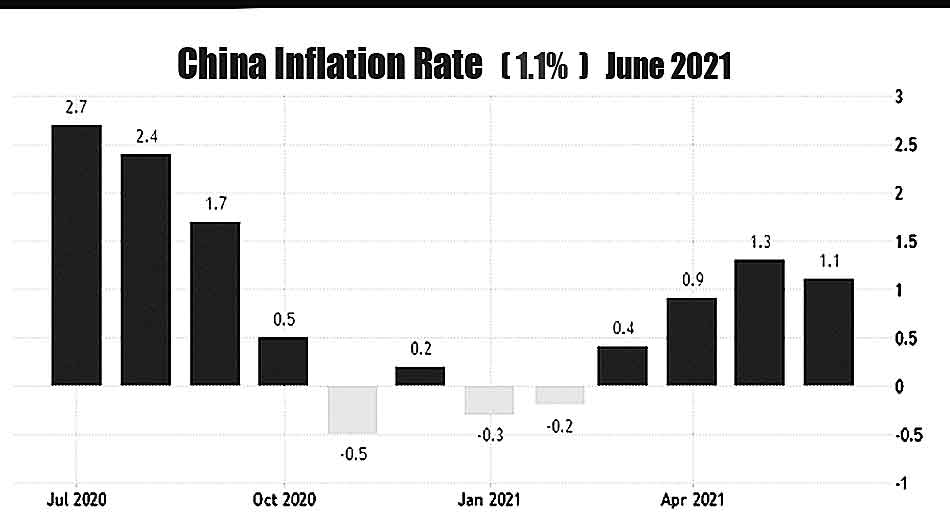China’s consumer-price inflation moved up 1.1% in June from a year earlier, slightly lower than economists’ forecast for a 1.2% gain, on the back of falling pork prices, according to a report by the country’s National Bureau of Statistics (NBS), released on Friday (July 9).
Pork prices have now dropped 36.5% from last year’s spike. Pork is a mainstay of the Chinese diet and a large component in China’s basket of goods and services. The plunge in pork prices is likely to be a drag on food inflation for a while longer, Julian Evans-Pritchard and Sheana Yue, economists at Capital Economics told clients in a note.
Concerns about price pressures in the world’s second largest economy look set to ease over the coming months, with inflation likely to settle at a level that is unlikely to trigger any shifts in monetary policy, the economists added.
Core inflation that excludes food and energy prices, held steady at 0.9% in June.

Last month, People’s Bank of China Governor Yi Gang, said that consumer price inflation is likely to remain below 2% this year while Beijing has a target to keep it below 3%.
Another report from the NBS showed that the producer price index (PPI), which measures the cost of goods at the factory gate, rose 8.8% in June year on year in line with economists’ expectations, and down from 9% in May. It was the first time the figure declined from the previous month since last October.
Dong Lijuan, a senior statistician at the NBS, said that the domestic policy of ensuring supply and stabilizing prices in the commodity sector started to show results. The supply-demand relation seems to improve and industrial product price growth slowed down to a certain degree.
To help firms cope with rising commodity prices, China’s cabinet said on Wednesday (July 7) that authorities would use timely cuts in the amount of cash that banks must hold as reserves.
On Friday (July 9), the People’s Bank of China said on its website it would cut the
reserve requirement ratio (RRR) for all banks by 50 basis points (bps), effective from July 15.
Commodity prices have marched steadily upward for months, driven by easing lockdowns in many countries and ample global liquidity. The S&P GSCI commodity index has risen more than 30% year-to-date.







